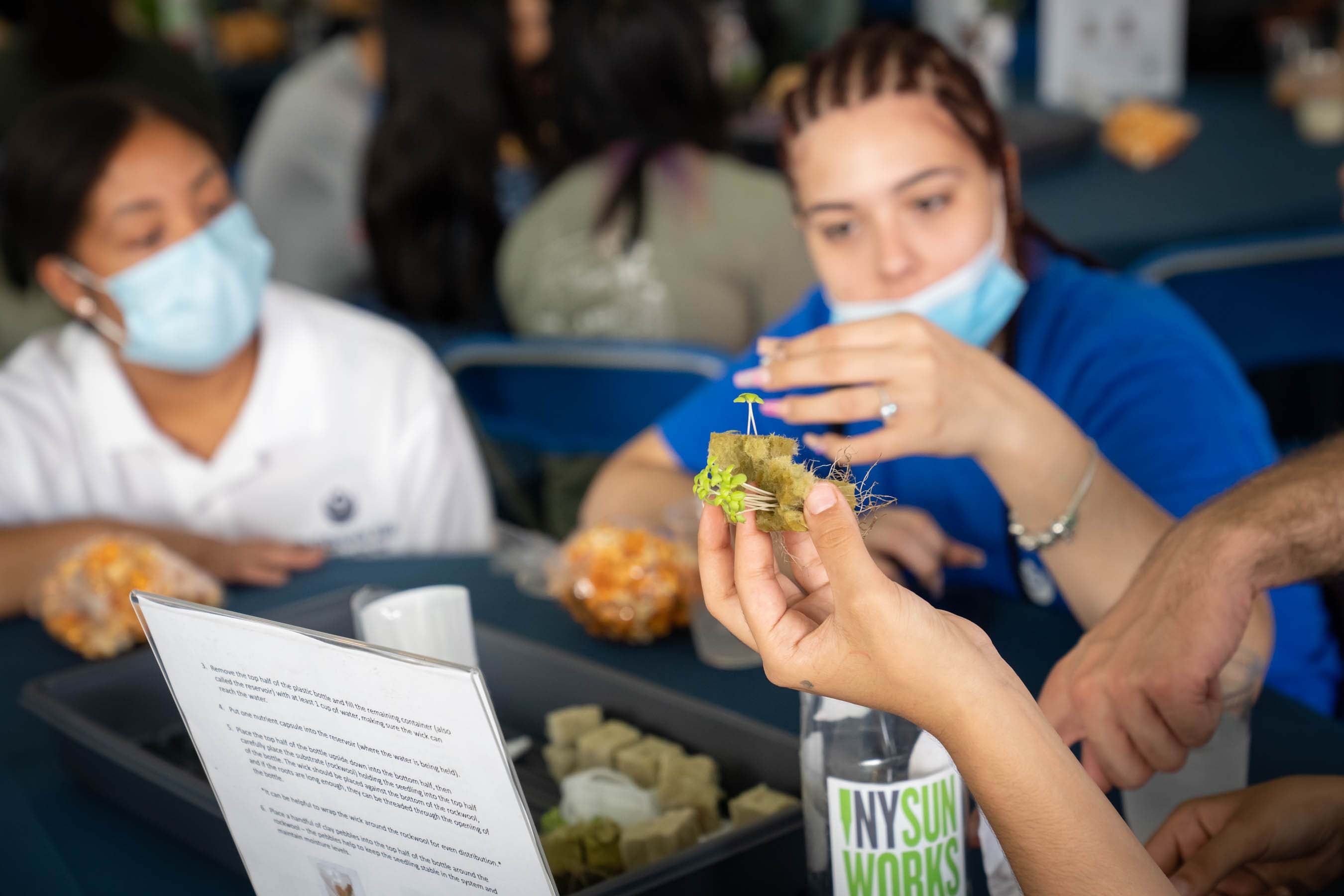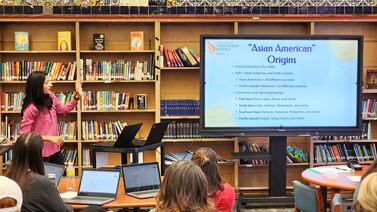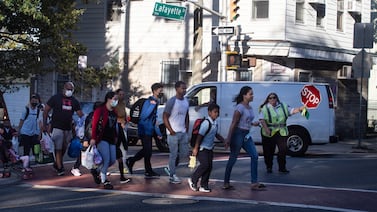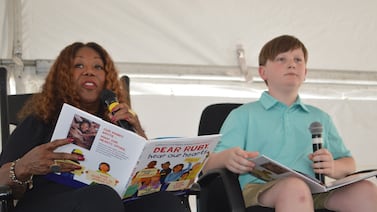Sign up for Chalkbeat New York’s free daily newsletter to keep up with NYC’s public schools.
This story was updated to reflect the new deadline, March 15.
Sixteen-year-old Martha Martin’s reason for applying to last year’s New York City’s Summer Youth Employment Program was simple.
“I had nothing to do over the summer,” she said.
But to her surprise, she loved the work.
Through the program, Martha was employed as a teacher’s aide in Bay Ridge, taking care of 3-year-olds. With the extra income, Martha was able to pay for her books and school supplies for the upcoming school year, while giving some extra money to her mom to help her family.
Now, Martha, an 11th grader at Pace High School in Manhattan, is considering a career in early childhood education.
“I realized that I like working with kids, and probably see that in my future,” she said. “I never expected myself to actually be working with kids, but I’m so glad that I did.”
What Martha experienced last summer mirrors that of thousands of other young people across the five boroughs. The Summer Youth Employment Program, also known as SYEP, has for decades provided the city’s youth with paid opportunities to explore potential career pathways.
But for those who want a chance to participate this year, the deadline is fast approaching: Applications are due by 11:59 p.m. on Friday, March 15. The city extended the deadline by two weeks.
The application period was moved up from last year’s mid-April due date to allow for earlier enrollment and to give community-based providers and worksites more time to prepare, according to officials.
In recent years, the program has expanded, with Mayor Eric Adams adding 25,000 seats in 2022 — bringing it up to 100,000 spots in total. Last year, the program also made a commitment to matching LGBTQ+ youth with “supportive work opportunities.”
City officials have praised the program, noting participation can improve school attendance, reduce incarceration rates, and help keep young people safe over the course of the summer.
Applicants are asked to indicate three areas of career interest among a wide range of industries, as well as three providers they want to work with.
Where can I apply?
Young people can apply online at: https://application.nycsyep.com/ApplicationPages/NYCIDLogin
Who is eligible?
The program is open to New York City residents between the ages of 14 and 24 who are legally eligible to work in the United States.
Participation in the program is not based on income, and applicants are not required to submit any documentation related to parental income.
Though undocumented youth aren’t eligible for the program, they and others who face enrollment obstacles are eligible for a smaller Department of Youth and Community Development program known as SYEP Pathways. It offers summer project-based learning to a number of young people.
That program, which had more than 800 spots last year, recruits through local community-based organizations, and young people interested in participating can check with their local organizations, according to officials.
The SYEP Pathways program has been praised for offering opportunities to undocumented youth, but has also raised some concerns that pay is inequitable compared with SYEP. Last year, the program provided participants with a stipend of about $500 for 60 hours of project-based learning.
How much will I earn? What will I be doing?
Programming and pay for the Summer Youth Employment Program vary based on the individual participant’s age.
Participants aged 16 and older will be assigned to work 25 hours per week for six weeks, earning $16 per hour. Meanwhile, younger participants will work about half as many weekly hours and earn up to $700 over the course of the program.
Younger participants are assigned projects by one of the more than 40 participating community-based providers, offering them a chance to explore future career opportunities and develop leadership and other skills over the course of the program.
Older participants are matched to a worksite based on their interests. Work sites can range between public, private, and nonprofit organizations. Last year, the program saw youth placed across nearly 18,000 worksites in industries that included finance, fashion, philanthropy, technology, arts, engineering, health care, legal services, real estate, transportation, advertising, hospitality, media, retail, and more.
Some young people who face particular barriers to employment — like those who are justice-involved, NYCHA residents, experiencing homelessness, attending District 75 schools, and more — also qualify for tailored experiences.
Am I guaranteed a spot?
The program has 100,000 spots, but applications typically exceed that number. The city fills the majority of seats by random lottery, according to DYCD. As of March 1, more than 140,000 people had applied.
Last year, more than 176,000 people applied for a spot in the program.
How long does the program run?
The program runs for six weeks in July and August.
Julian Shen-Berro is a reporter covering New York City. Contact him at jshen-berro@chalkbeat.org.







